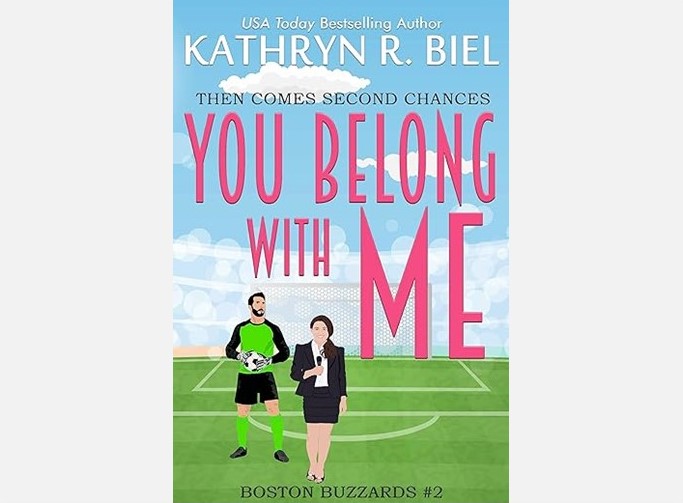Story for the Week
Back in 1989, a company called Maxis released a PC game called Sim City. Players of the game act as the mayor of a simulated city (thus the word “Sim” in the name) of their own creation—building roads, zoning, adding schools and municipal buildings, putting up power lines and power plants. You can determine tax levels and turn natural disasters on or off. Advisors offer suggestions of policies to put into place. You can literally watch homes and businesses being built, and while it’s ancient in terms of graphics now, there was the novelty back then of watching computerized cars traveling on the roads that you built. I never succeeded in building a profitable city, but it didn’t stop me from loving the game.
In 1997, Maxis was acquired by Electronic Arts. Fast forward to the year 2000, and EA released a new game that, in my opinion, blew Sim City away. The launch of The Sims was the beginning of my addiction to PC games. When I wasn’t working or sleeping, I was playing this game. If you’ve never played…well, first off, what the heck are you waiting for?!?! OK, sorry…if you’ve never played, you create people (Sims who speak a gibberish language known as “Sim-lish”), build their homes, make them practice skills, send them to work or school where they earn Simoleons, have them meet other Sims, fall in love, get married.
You can force them to take specific actions like taking a shower, cooking dinner, reading a book, practicing an instrument, and even “woo hoo-ing,” and trying for a baby. They have to pay the bills that come in the mail every three days, or they risk having the power turned off (in the first version, items you bought were repossessed). You can allow them free will, which basically means they will keep doing things even when you don’t assign tasks, and they will go to the bathroom when they have to (although sometimes they have accidents, which leave them embarrassed and needing a shower). They have a panel of needs that have to be satisfied—things like eating, showering, socializing, sleeping—and depending on the personality traits you assign to them, some of them need more time for certain activities than others. An outgoing Sim needs to socialize often, whereas an introverted Sim will be happy reading a book at home.
Adult Sims have to take care of their infant and toddler Sims—feeding, potty training, playing with them. If you can’t manage it on your own (which you totally can’t if both of your Sim parents work), you’d better have an older child in the home or hire a nanny. I remember vividly the first baby my Sims had in the original game was taken away by social services because the baby was crying and I couldn’t wake up my Sims in time. 😮
You can kill off your Sims if you don’t want to let them age and die naturally. You can make them go into a room and remove the door, and they’ll starve to death. In the original version, you could put them in a pool and then remove the ladder, and they would drown. In the current version, one of the expansion packs includes seasons, and if you leave someone outside in the winter without cold-weather clothes, they will freeze to death. If your Sim is outside in a thunderstorm, they can die from being struck by lightning twice. Old Sims can exercise to death. (I learned those last three by accident, and I felt horrible. 😬) There’s even a Grim Reaper that appears when someone is about to die, and your surviving Sims will mourn the Sim who died.
I have purchased every edition of this game, including most of the dozens of expansion and “stuff” packs and the offshoots like The Sims Medieval, which could be a whole blog post of its own, and The Sims Freeplay, a mobile app with the feel of the PC game but much more limited features and gameplay. The first edition included nine identical neighborhoods, so you could create a pretty good number of different families, but the lots you could build houses on in each neighborhood were all the same. When I first started playing, I used to print out legal-size sheets outlining who my Sims were friends with, what their skill levels were, and what their jobs were to help me keep them all straight. I, of course, created myself at one point, and there was a journalism career track. Since I majored in journalism in college, I chose that career in the game as well. By the time I made it to the top career in my field (Talk Show Host), I had built a huge mansion for myself on the largest lot, complete with balconies and en suite bathrooms for every bedroom. In The Sims 4, I just recently built a house in the exact layout of my real home.
In 20 years of game development, The Sims of 2000 is obviously nothing like The Sims 4 of 2020. I have progressed through every edition, and I am anxiously awaiting the release of The Sims 5, which is rumored to be planned for release in early 2021. As a result, my husband almost always has an expansion pack or a stuff pack that he can buy for Christmas and my birthday. The expansion packs are clearly better now, and the neighborhoods you can move into are all different, with night clubs and gyms and restaurants and even colleges where Sims can go to school and socialize.
But every game has one thing in common. YOU are in charge. You determine your Sims’ hair color, eye color, skin tone, whether they have moles, curly or straight hair, the shape of their noses and other facial features. You determine every detail, and you place them in a world of your own design.
You basically get to play God. And while I wouldn’t want to BE God, the ability to play God on my laptop is kind of fun.
I recently read a book that reminded me of my addiction to The Sims. Take a look.
Book Review
⭐⭐⭐
3 Stars for The God Game by Danny Tobey
464 pages
Publisher: St. Martin’s Press
Publication Date: January 7, 2020
I received an advance copy of this title from NetGalley and St. Martin’s Press in exchange for an honest review.
Publisher’s Description
You are invited!
COme inside and play with G.O.D.
Bring your friends!
It;’s fun!
But remember the rules. Win and ALL YOUR DREAMS COME TRUE.™ Lose, you die!
With those words, Charlie and his friends enter the G.O.D. Game, a video game run by underground hackers and controlled by a mysterious AI that believes it’s God. Through their phone-screens and high-tech glasses, the teens’ realities blur with a virtual world of creeping vines, smoldering torches, runes, glyphs, gods, and mythical creatures. When they accomplish a mission, the game rewards them with expensive tech, revenge on high-school tormentors, and cash flowing from ATMs. Slaying a hydra and drawing a bloody pentagram as payment to a Greek god seem harmless at first. Fun even.
But then the threatening messages start. Worship me. Obey me. Complete a mission, however cruel, or the game reveals their secrets and crushes their dreams. Tasks that seemed harmless at first take on deadly consequences. Mysterious packages show up at their homes. Shadowy figures start following them, appearing around corners, attacking them in parking garages. Who else is playing this game, and how far will they go to win?
And what of the game’s first promise: win, win big, lose, you die? Dying in a virtual world doesn’t really mean death in real life—does it?
As Charlie and his friends try to find a way out of the game, they realize they’ve been manipulated into a bigger web they can’t escape: an AI that learned its cruelty from watching us.
God is always watching, and He says when the game is done.
************
As a long-time player and lover of The Sims, where you CAN actually play God to a world of people you create, I was immediately pulled in by the premise of Danny Tobey’s The God Game. The online gaming industry is enormous, and this story plays on people’s fears about the capability and reach of artificial intelligence. In a world where we constantly hear about personal data being hacked, stolen, spoofed, this is actually a futuristic horror novel in the making.
Nevertheless, I had to knock it down to 3 stars because I had a hard time suspending disbelief enough. I think hard-core gamers and coders will appreciate this, but the layperson will find it difficult to follow some of the more advanced coding references. I consider myself relatively tech-savvy, and I had a hard time understanding some of it.
Additionally, the sheer number of people who had to be playing the God Game to make some of the things in the story happen is hard to imagine. I know there are people who game for a living, but the main characters here are high school students who are going to school by day and gaming at night. They seemingly never sleep, and no one seems to notice. Same goes for the other people playing. Does no one in this town work for a living?
As I said, hard-core gamers will likely enjoy this. For me, it was a hard…maybe.
If you enjoyed this post, please comment below. Subscribe for regular updates, and share it with your friends. If you’re interested in starting a conversation, send an email to booksundertheblanket@gmail.com.
As an Amazon affiliate, I earn a small commission at no cost to you when you make a purchase using the links on my site.





